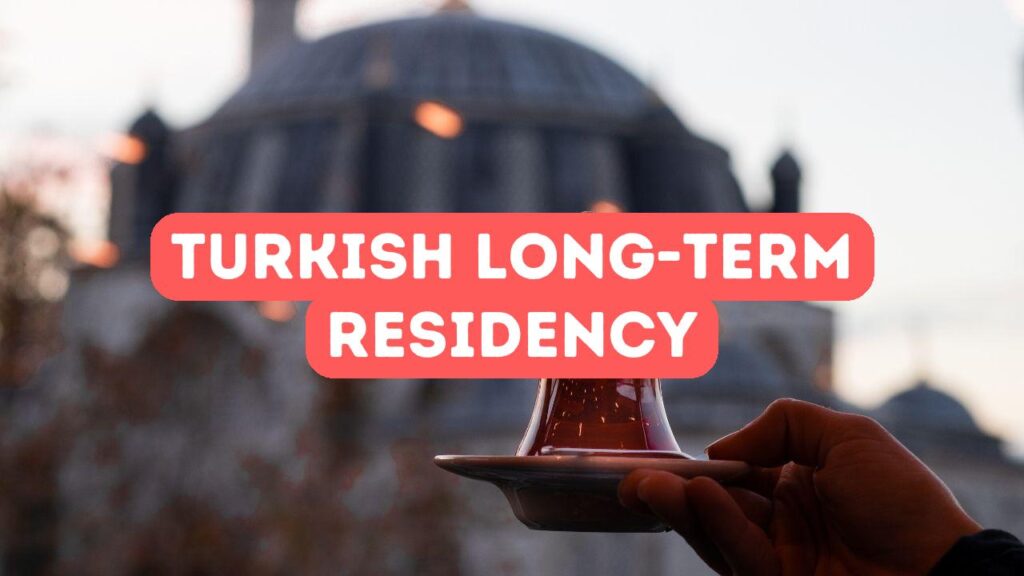Residency in Turkey and citizenship in Turkey each grant different privileges, and knowing the differences between residency and citizenship is vital for anyone considering a move. Residency in Turkey mainly provides the right to live and work, acting like a key to open doors to everyday experiences. In contrast, citizenship in Turkey unlocks deeper benefits, such as voting and a Turkish passport. It’s crucial to understand how to apply for Turkish citizenship if you desire more than just residency. The path to citizenship involves Turkey immigration laws, which can be daunting. But, don’t let this hurdle deter you. Embrace the challenge and discover what suits your needs best. Whether you aim for the stability of residency in Turkey or the broader rights of citizenship, understanding these options clearly is essential. After all, making informed decisions can lead to a rewarding new chapter in Turkey. Take the leap with confidence.
Understanding Residency Options in Turkey
When considering residency in Turkey, it’s essential to grasp the different types available, as this sets the stage for your new adventure here. Temporary residency, often sought by expatriates, includes options like the tourist residency permit, which allows you to stay for short periods without working rights. For those looking to plant deeper roots, a long-term residency permit becomes vital, offering more enduring stability. The family residency permit is your ticket if joining loved ones who are already settled here. Curious about working legally? The work residency permit allows you to build a career while living in Turkey. But regardless of the type, the process hinges on understanding Turkey immigration requirements. Navigating these waters skillfully charts the course for a successful transition. So, whether you choose the serenity of coastal life or the bustle of cityscapes, knowing your residency options is key. Why not dive in and explore your new future?
Exploring residency in Turkey is like embarking on a discovery tour, each option revealing a new pathway. Take the student residency permit, for instance. It lets scholars immerse themselves in Turkish academia, diving deep into knowledge. For investors seeking a gateway, the property residency permit is a golden ticket. Purchase property, and you unlock the door to living in one of the world’s cultural crossroads. But how does this differ from citizenship in Turkey? The main difference lies in rights and durations—residency offers temporary perks while citizenship provides lifelong benefits. Understanding Turkey immigration rules is crucial, especially if you’re pondering how to apply for Turkish citizenship as your goal. Grasping these differences between residency and citizenship leads to informed choices. Each path, whether about residency or citizenship, brings its own flavor of opportunity. So, why not navigate this journey with eyes wide open and hearts ready for adventure?
In the bustling marketplace of residency in Turkey, each permit is a unique stall offering its own promise. Consider the humanitarian residency permit—an essential lifeline for those fleeing difficult circumstances, providing shelter and security. Business enthusiasts, on the other hand, might lean towards the self-employment residency permit, a passport to entrepreneurial ventures within Turkey’s dynamic economy. But what about transitioning to citizenship? If you’re keen on planting permanent roots, understanding how to apply for Turkish citizenship is key. Turkey immigration pathways can lead from residency to citizenship if you meet certain criteria. Knowing the differences between residency and citizenship in Turkey helps you navigate this labyrinth of opportunity. Each choice dangles its own set of keys; you decide which doors to unlock. As you stand at this crossroads, remember, every step you take is a step towards weaving your own Turkish tapestry—where will your thread lead?
The Path to Turkish Citizenship
Embarking on the journey to citizenship in Turkey is like setting sail on an exciting voyage. The process begins with understanding Turkey immigration rules. Start by identifying your eligibility, as determining whether you qualify can navigate your path smoothly. For many, residency in Turkey serves as an anchor—stabilizing life until they decide to pursue the broader horizons of citizenship. If you desire more extensive rights like voting, learning how to apply for Turkish citizenship becomes crucial. It often involves a series of steps: holding a residence permit, proving language proficiency, and showcasing financial self-sufficiency. This journey demands patience and persistence, but remember, each step brings you closer to building a permanent future in the vibrant tapestry that is Turkey. Understanding the differences between residency and citizenship is key, allowing you to steer your course with informed confidence and prepare for the momentous transition from resident to citizen.
Navigating the path to citizenship in Turkey might seem steep, but with the right guidance, it becomes manageable. Kicking off as a resident, one gains insight into the cultural and social fabric of Turkish life—almost like sampling the banquet before committing to the feast. Reaching for citizenship in Turkey means unraveling the intricate tapestry of Turkey immigration processes, which require diligence and attention. Begin with comprehending the differences between residency and citizenship, as this clarity forms the bedrock for astute decisions. Gathering essential documents speaks volumes of your intent; it’s akin to presenting your vision board to a new chapter. Knowing how to apply for Turkish citizenship will be your compass, with language skills and financial stability standing as significant milestones. The path, though layered, is rewarding—each step bridging the gap between aspiration and accomplishment, ultimately inviting you into a realm of expanded opportunities.
Transitioning from residency in Turkey to full-fledged citizenship in Turkey is akin to moving from a taste tester to a head chef in life’s grand culinary adventure. The Turkey immigration process is complex yet rewarding, demanding familiarity with the country’s legal landscape. Knowing how to apply for Turkish citizenship is your map; comprehend the differences between residency and citizenship to guide your journey. Begin by mastering the language, as fluency not only breaks barriers but also weaves you into the fabric of Turkish culture. Financial stability stands as your sturdy stepping stone, signaling your readiness to contribute to the community. Each requirement you fulfill is a milestone, each application you submit is a tale of your commitment. In this pursuit, patience is not just a virtue but a vital ally, steadily lighting your way toward becoming a beloved member of Turkish society. Step by step, the leap from resident to citizen becomes a dance of determination and resolve.
Legal Implications and Benefits of Each Status
Residency in Turkey offers a pathway to legally reside and work, granting you access to the local real estate market and enabling your seamless participation in domestic life. Think of it as receiving the key to your new Turkish abode—empowering yet distinctly limited compared to the full spectrum of rights afforded by citizenship in Turkey. Citizenship, however, unlocks the ability to vote and obtain a Turkish passport, providing more than just permission to reside. Navigating the Turkey immigration process for citizenship may seem daunting, but understanding the differences between residency and citizenship proves critical. When pondering how to apply for Turkish citizenship, remember that while residency opens the door, citizenship throws it wide open. Carefully weigh these legal implications, tailoring your choice to fit your specific aspirations in Turkey. This exploration into what suits your needs best is both illuminating and essential.
Residency in Turkey provides a solid foundation for starting your life there, allowing access to essential benefits like local healthcare and education, while still having significant restrictions. Yet, the legal implications of citizenship in Turkey vastly outweigh those of residency, granting privileges like voting and the freedom to engage in political discourse. Comprehending the differences between residency and citizenship is crucial; the decision impacts your Turkish journey profoundly. Turkey immigration laws shape the process, with citizenship offering fuller protection under the law and a broader identity tethered to Turkey. For those drawn by the allure of a Turkish passport, exploring how to apply for Turkish citizenship becomes essential. Weigh these differences carefully against your goals. Whether you seek the security residency offers or the comprehensive rights of citizenship, your choice should reflect what aligns best with your vision for a life in Turkey.
Residency in Turkey, coupled with its implications, forms a sturdy base for newcomers. It grants access to local services, yet remains somewhat finite compared to citizenship in Turkey. Imagine it as an invitation to partake in the local scene, but without the substantial civic sway citizenship wields. Dive into the Turkey immigration system and you’ll see how residing doesn’t offer a say in the political sphere—voting is absent from the list of rights. Citizenship, conversely, is your golden ticket to full participation, bearing privileges far surpassing simple residency. Unlocking this status through understanding how to apply for Turkish citizenship can transform your experience, offering not just benefits but a deeper connection to Turkey. Weigh the differences between residency and citizenship carefully. Whether your goal is to immerse yourself in daily life or dive into the deeper waters of national identity, align your choice with your aspirations for your Turkish adventure.






